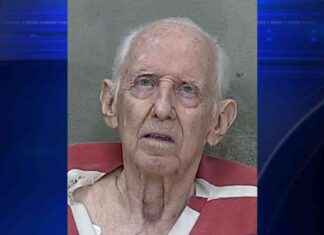The first day of the indefinite stoppage of part of the transport ended with the protesters returning to their provinces and a minimal impact on the sector. “Absolute normality” in practically the entire country, government sources highlighted yesterday, who had turned on the alarm light at the possibility of scenes like those in March being repeated, with violent incidents and empty supermarket shelves in some territories. The distribution chain also certified that everything worked like any other Monday. Meanwhile, the truck drivers in conflict demonstrated in Madrid and unsuccessfully tried to meet with the number two of the Ministry of Transport to demand a tightening of sanctions on companies that force professional drivers to work at a loss.
There was a certain feeling of vertigo in the hours before the start of this second strike called by the Platform for the Defense of Road Transport. Both in the Executive and among professionals against the protest. But it was a day when carriers who wanted to work were able to do so normally, both in logistics centers and on the roads. This is how it was transferred by the State security forces and bodies that were deployed by nodes and communication routes. There were hardly any violent incidents, a situation that contrasts with what happened in March. On this occasion there were only half a dozen minor events: the tire fire in Algeciras, the burning of four tractor heads in Villaescusa (Cantabria) and the punctured tires in Illescas (Toledo) and El Provencio (Cuenca). The Civil Guard also had to escort 13 convoys during the day and in MercaJerez the Police dissolved the only informative pickets, since they are not allowed as it is a lockout.
The operation to save the distribution designed by the Ministry of the Interior was effective. This was also confirmed by the large chains such as Mercadona, Carrefour, Dia or Alcampo, among others, who ask the Government to maintain this special device for the next few days. From early yesterday morning, a coordination center was activated in Madrid, chaired by the Secretary of State for Security, Rafael Pérez, confirmed this normality in the nerve centers of transport, including ports and large central markets of the main cities. Said normality in transport was also credited at the evening meeting, an official spokesman reported.
The calling organization of the strike demonstrated yesterday in Madrid to try to exhibit muscle. But the protest was not like the one in March. Barely several hundred people supported the march, which was joined by some organization of farmers and ranchers. During the tour banners such as “this is a ruin, solution now” or “Sánchez trilero” could be seen. The Platform even stated that it was going to be received by the Secretary of State for Transport, Isabel Pardo de Vera, a version that sources from the ministry deny.
The callers of the strike met in the afternoon in the vicinity of the Wanda Metropolitano stadium to specify the next steps. They leave Madrid. Its leader, Manuel Hernández, assured late in the afternoon: “We are going to continue the strike, each transporter from his province.”
The distribution ensures that the economic impact of the first day of unemployment was nil. The truck drivers who protest, meanwhile, continue to insist on their demands to the Government. On October 31, they sent a letter to Raquel Sánchez in which they demanded fines of up to 90,000 euros from companies that force carriers to work at a loss and that the Civil Guard intervention on the road be stipulated as a proving measure of non-compliance with costs. This responsibility falls on the Transport inspection that the ministry plans to reinforce in 2023.








